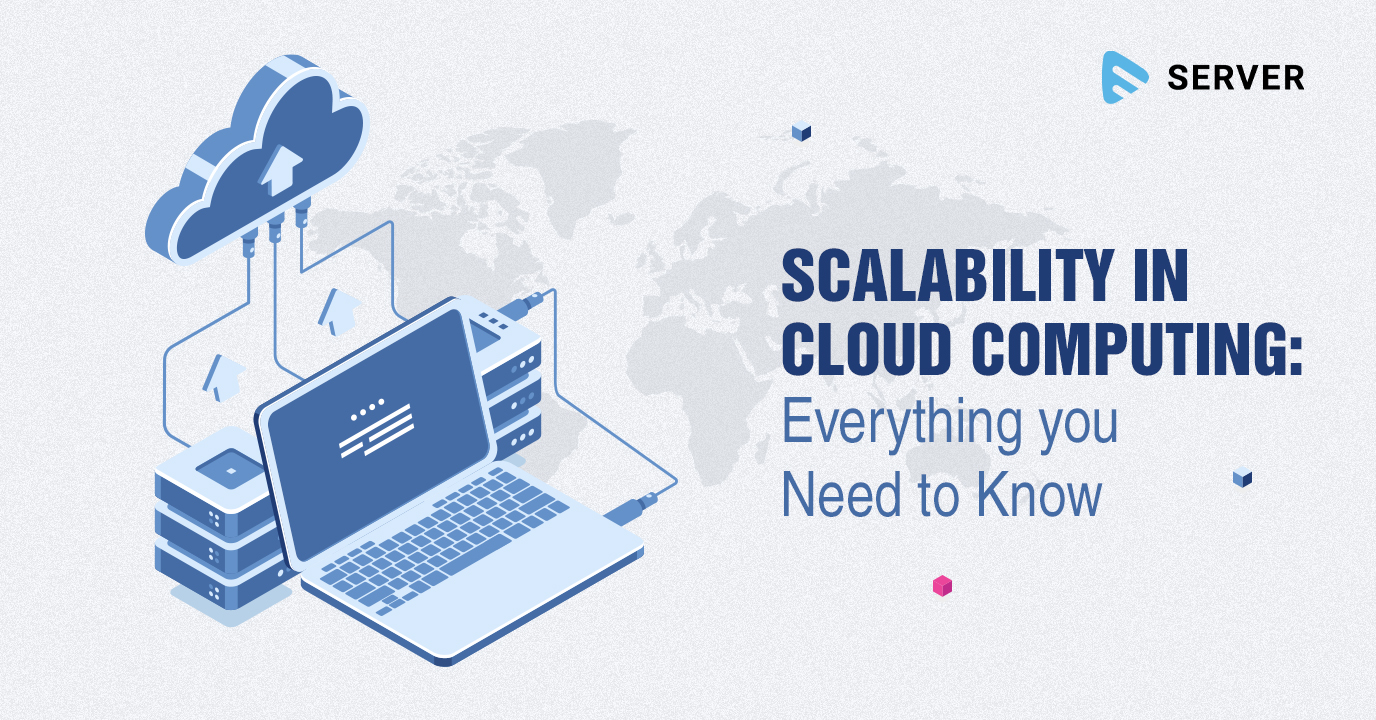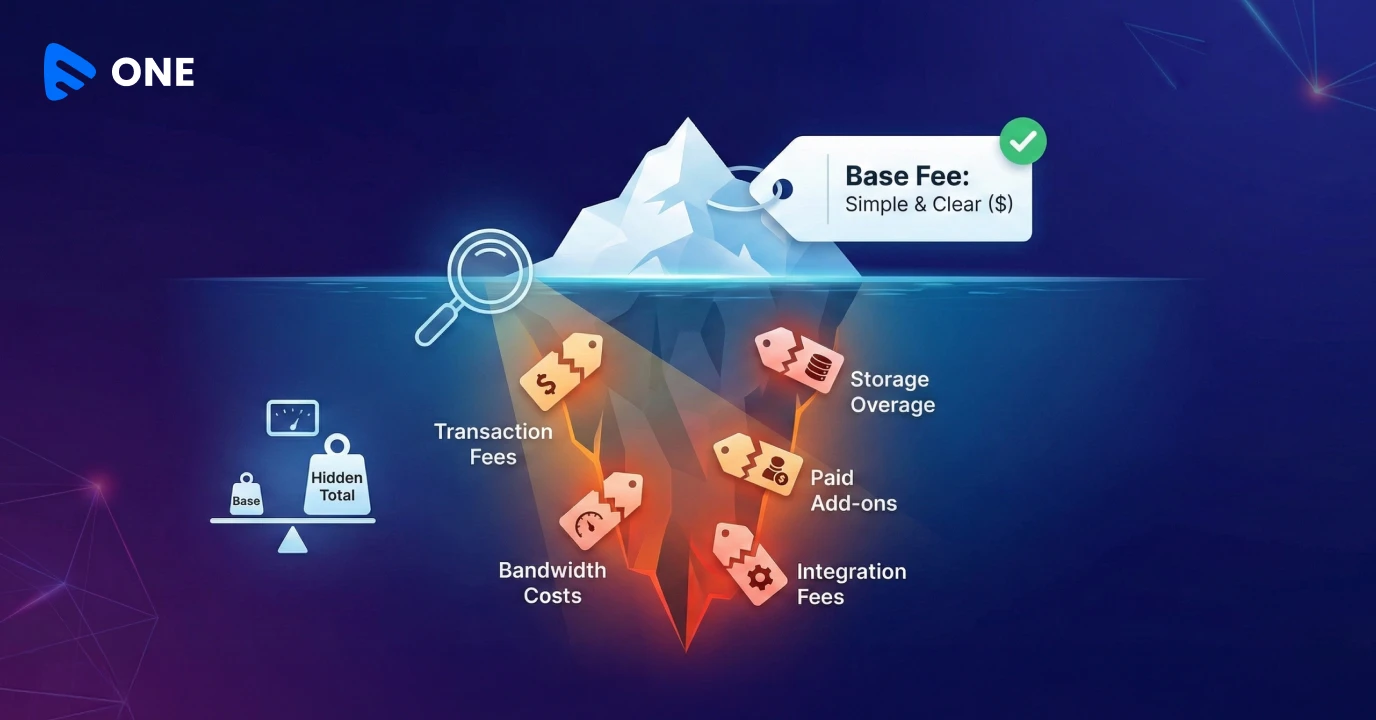From the inception of cloud computing, storing data has become a lot easier than it was in the past with its paraphernalia of investments, resources, management. The two biggest benefits of the cloud are: cost effectiveness and simplified scalability. In this blog we will be discussing the concept of cloud scalability and its kinds and how it helps in long-term business growth.
What is Cloud Scalability?
Scalability refers to the ability of the cloud computing architecture to increase or decrease its functions by handling its resource requirements according to the workload capacities while also retaining performance. This is one of the most valuable and predominant features of cloud computing. Through scalability you can either scale up your data storage capacity or scale it down as and when required according to your business workloads and requirements.
Simply put, through cloud scalability you can achieve a desired flexibility allowing your business enough room for handling increasing or diminishing resources with more stability and efficiency. With cloud scalability, you can easily add nodes or increase the number of servers to increase your storage space. When the increased demand is reduced, you can move back to your original configuration without hassles.
Also read: Why do You Need a Cloud Streaming Server?
Cloud Scalability Strategies
1. Vertical Scaling– Vertical scalability or scaling up means increasing the server capacity by adding additional resources to meet the workload changes. This ability to add resources to accommodate increasing workload volumes is vertical scaling. It can resize your server with no change in your code.
2. Horizontal Scaling– Horizontal Scaling or scaling out is the addition of nodes to the existing infrastructure for accommodating additional workload volumes. Contrary to vertical scaling, horizontal scaling also delivers performance along with storage capacity. This process lets you keep your existing pool of computing resources online while adding more to what you already have.
3. Diagonal Scaling– Diagonal scaling is a combination of scaling up and scaling down which constitutes upgrading and adding components to a single server up to a critical point and then replicating the server in its current configuration.
Scalable Cloud-based Services
Cloud based service models include SaaS, IaaS and PaaS.
1. SaaS– Predicted by Gartner to reach a staggering $116 billion benchmark in 2020, SaaS (Software-as-a-Service) is a cloud computing service model that provides users or clients access to a vendor’s cloud-based software for a monthly subscription fee. Clients using SaaS, instead of installing apps on their local devices access the apps that are hosted on a remote cloud network through the web or an API.
2. PaaS– PaaS or Platform-as-a-Service is a cloud computing offering that allows users to develop, manage, and deliver applications including development tools, infrastructure, and operating systems, over the Internet. Users don’t have to pay for hosting apps; instead, they pay for the essentials needed to build, customize, test, and deliver those apps.
3. IaaS– IaaS or Infrastructure as a Service is a cloud computing service model in which a vendor provides users access to cloud-based alternatives to on-premise infrastructure such as servers, storage and networking allowing businesses to avoid investing in expensive on-site resources. Organizations use their own platforms and applications within a service provider’s infrastructure. IaaS businesses offer services such as pay-as-you-go storage, networking, and virtualization.
To learn more about SaaS, IaaS and PaaS, read our blog on What are the Main Cloud Computing Service Models?
Why Opt for a Scalable Cloud Computing System?
The way the resources can be allocated and enhanced has been revolutionized by the concept of cloud scalability. Let’s browse through the reasons why businesses are opting for a scalable cloud computing system:
1. Performance– Scalability in the cloud facilitates performance as a scalable architecture has the ability to handle the bursts of traffic and heavy workloads that will come with business growth. So no matter the amount of unprecedented traffic spikes, there is absolutely no room for performance deterioration.
2. Cost-Effective– With a cloud setup you allow your business to grow without making any expensive changes in the current setup. This greatly reduces investment in storage growth making scalability in the cloud very cost effective. you use only what you need, and you pay only for what you use.
3. Flexibility- One of the best advantages of cloud scalability is its flexible setup. should a customer demand more resources, they can be quickly added. Also, should business needs fluctuate, those resources can always be scaled back as warranted — thanks to the cloud’s scalability.
Wrapping Up,
The ability to meet the demands of your business with flexibility is what makes the cloud scalability so powerful. If you’re interested in setting up a professional online video business with minimum upfront investment, a scalable cloud video streaming solution is the way to go.
Built in the cloud, Muvi Flex lets you host, manage, and deliver multi-format audio and video files across any devices and platforms. As a scalable hosting platform, it simplifies on-demand video & audio streaming by bundling storage, encoding, transcoding, analytics, distribution, and playback in an easy-to-use solution that lets you stream high-quality videos anytime, anywhere.
Take a 14-day Free Trial of Muvi Flex, now!













Add your comment